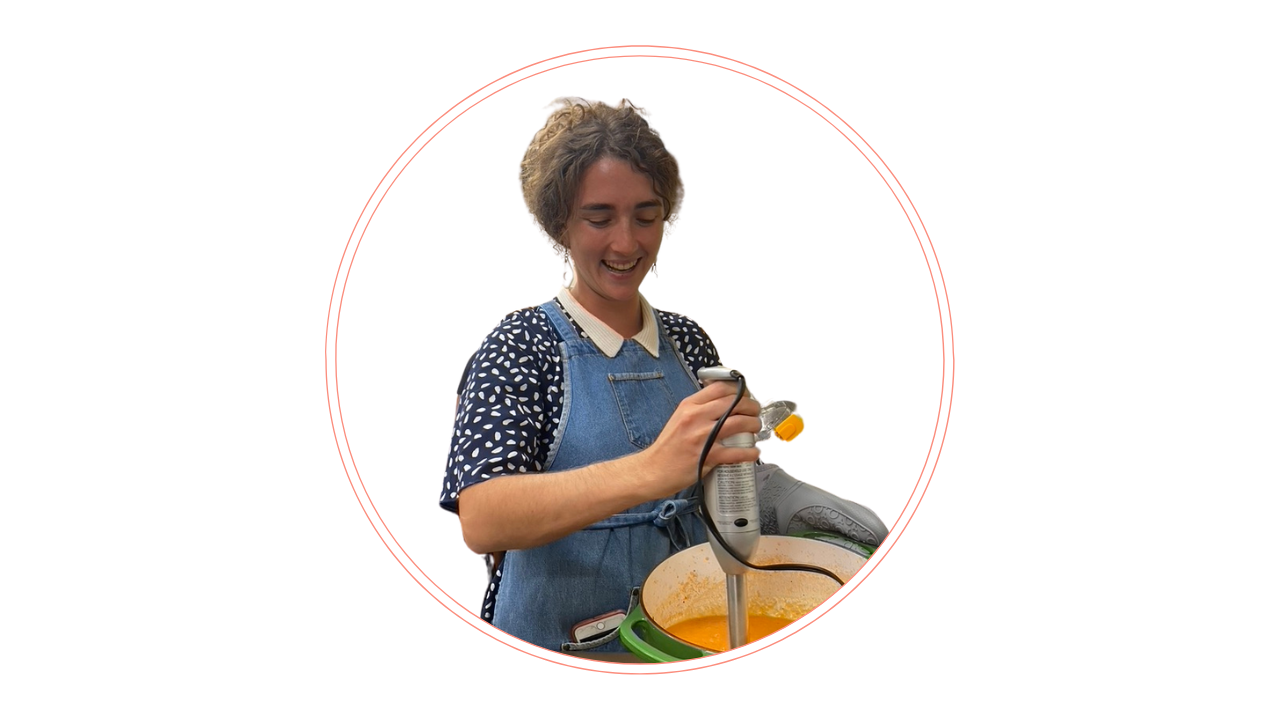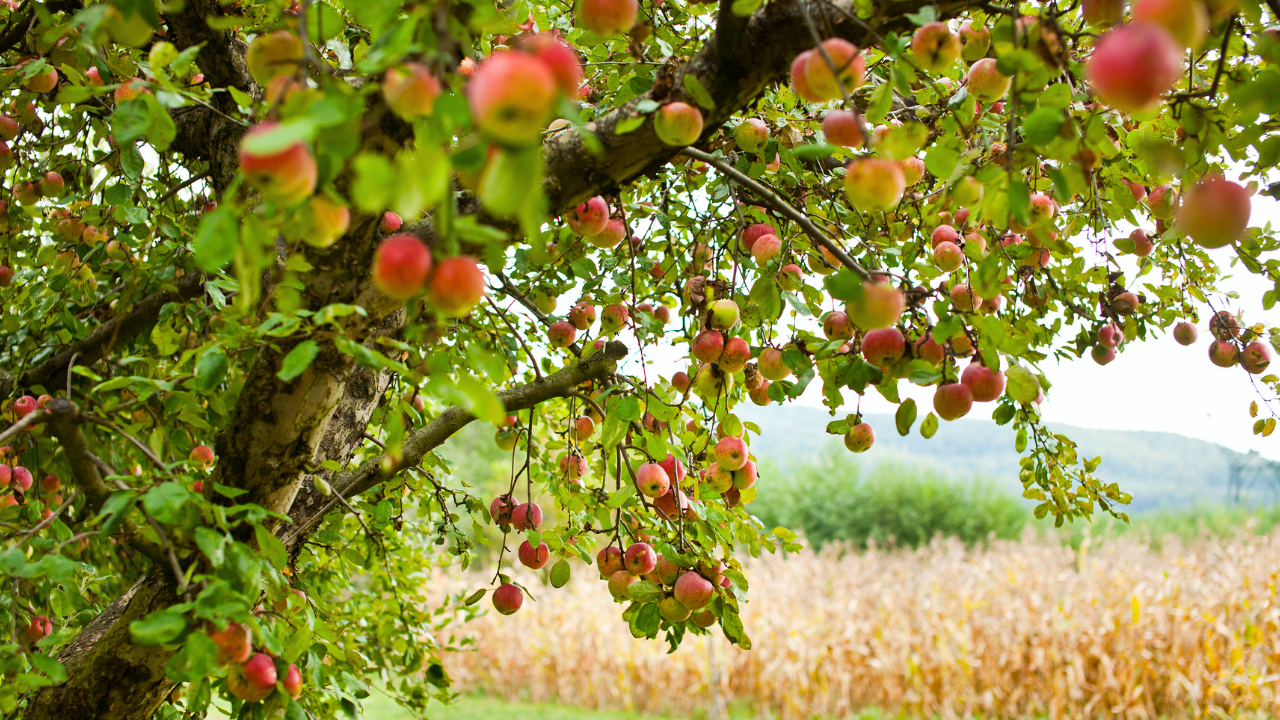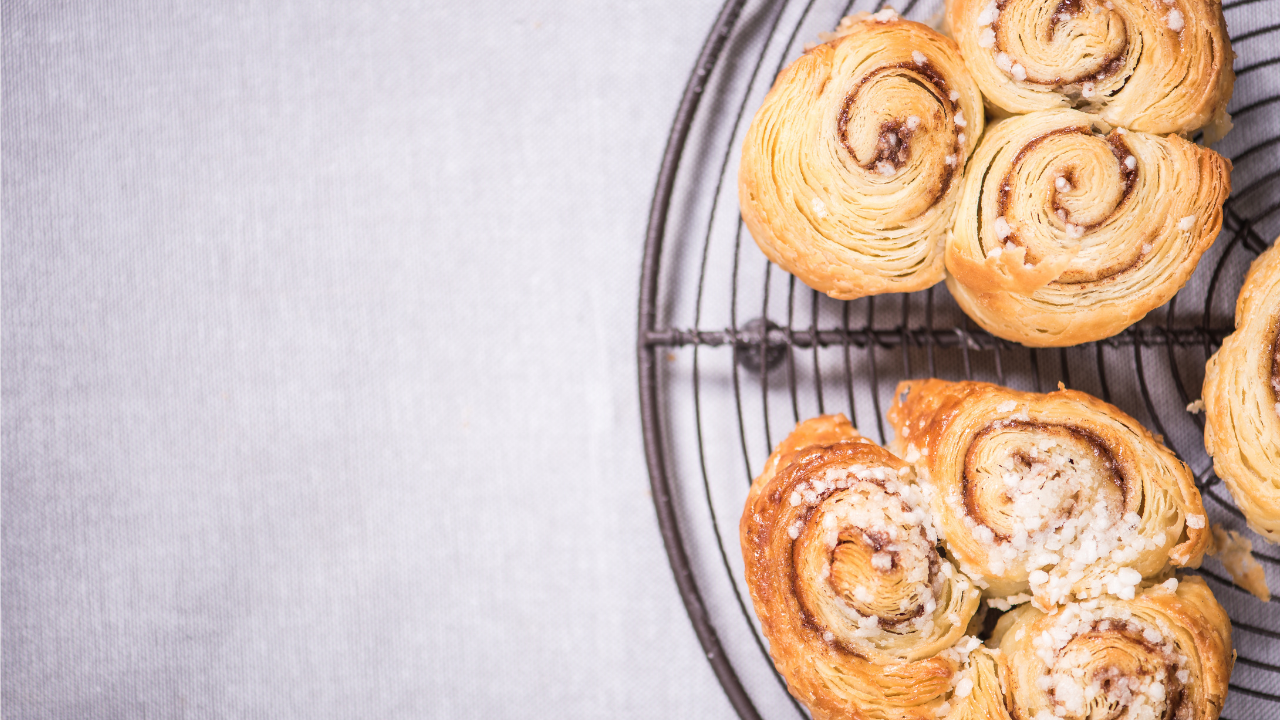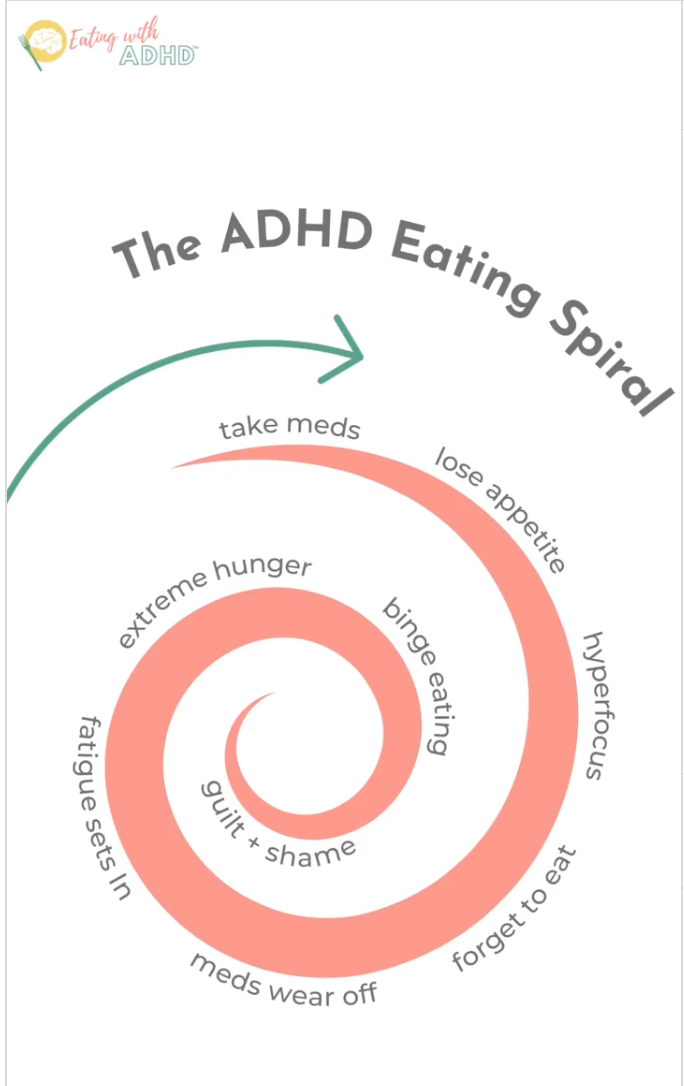Wise Heart Nutrition Blog:
All Things Anti-Diet, Intuitive Eating, and ADHD
Why ADHDers Eat When They’re Not Hungry (and Why It’s Not a Problem to Fix)

Have you ever caught yourself standing in front of the fridge, nibbling on snacks even though you don’t feel physically hungry? If you have ADHD, this might sound very familiar.
The truth is, eating when you’re “not hungry” isn’t about lack of willpower or being “out of control” with food, despite what diet culture would like you to believe. In reality, your brain and body are trying to meet very real needs. Sometimes that need is actual hunger, but it can also be about other things that our body and brain are needing.
When we zoom out, we can see that ADHDers often experience a few different “flavors” of eating. These patterns can overlap, shift, and show up differently depending on the day, and none of them are wrong. In fact, they’re forms of self-care.
Let’s break down the three most common ones:
✨ Dopamine Eating
ADHD brains have lower baseline levels of dopamine (and fewer transporters to help that dopamine activate the reward center of the brain), the neurotransmitter...
In the Kitchen with ADHD

By Marcy Landes, MSN
COOKING WITH ADHD MEANS…
Grocery stores are overstimulating, with way too many options—seriously, why didn’t I make a list beforehand??
You keep telling yourself, “I’ll go tomorrow,” but tomorrow turns into three more days of scavenging for crumbs.
By the time you finally make it to the kitchen, you’re ravenous because your hunger cues decided to take the afternoon off.
You don’t have the spoons to follow a recipe (and even if you do, you somehow miss a crucial step anyway).
And then—those veggies you were actually excited to roast? Yep, burnt to a crisp because you forgot the timer.
You’re stuck in a hyperfixation food loop—loving it one week, hating it the next, and suddenly… no idea what to eat.
You don’t want to cook because the dishes aren’t clean, and the thought of washing them? A major chore (without the allowance money).
While cooking, it’s chaos: cupboards and drawers wide open, bowls crashing, and somehow, you’re using seven utensils for one dis...
8 Ways ADHDers Mask with Food 🎭

It’s not Halloween, there’s no masquerade ball invite, and we didn’t catch a cold—so why are ADHDers masking? 🎭
*Ba dum tss!*
All jokes aside, masking—sometimes called “social camouflaging”—is when neurodivergent individuals hide or suppress their natural behaviors, traits, or tendencies to fit societal norms and expectations.
Across the neurodivergent community, some common examples of masking include:
- Suppressing stimming, like avoiding repetitive movements or motions.
- Mirroring social behaviors, such as copying facial expressions, gestures, or tone of voice.
- Forcing eye contact, even when it feels deeply uncomfortable.
- Hiding sensory discomfort (like noise, lighting, or certain textures).
- Rehearsing scripts for conversations to navigate social situations more easily.
But masking doesn’t just happen in social interactions.
What does masking look like when it comes to food and eating? How do social stigmas—and societal expectations—show up at the tabl...
The Truth About ADHD and Sugar: Are We Addicted?

The results are in…
*SUGAR IS NOT ADDICTIVE*
Good news, fellow ADHDers! We are NOT addicted to sugar because sugar is NOT an addictive substance. Thanks for tuning in—see you next time!
...
But seriously, sugar addiction is a hot topic (and we have a lot to say about it). Whether you’ve felt an uncontrollable pull toward sweets (maybe due to diet culture, undernourishment, using sugar as a coping tool, the list goes on) or heard friends, family, or partners share their own “sugar struggles,” I’m here to offer a fresh perspective on this tasty debate.
Let’s start with the basics… What the heck is sugar?
SUGAR / STARCHES / CARBOHYDRATES = GLUCOSE
In our bodies, all sugars—from fruits, grains, roots, legumes, veggies, sweets, and drinks—are eventually broken down into their simplest form: glucose. Glucose is a neat little ring-shaped molecule that gets absorbed from our bloodstream by our cells to create energy. In fact, about 45-65% of our energy comes from glucose alone. Wowee! T...
🧠How does the ADHD INCUP Motivation Model apply to Eating with ADHD®?

Alright ADHDers, let's have another chat about the one, the only, MOTIVATION!
Elusive in nature and oh so empowering when the stars (and chemicals in our brain) align in motivated harmony✨
We know that tapping into motivation is hard for people with ADHD due to differences in executive function and brain chemistry, like challenges with delayed gratification, task perception, emotional regulation difficulties, susceptibility to environmental distractions, etc, etc, etc.
But guess what? We've got some secret sauce, a trusty tool to share with you, for igniting that motivation.
Drumroll please... let’s introduce the INCUP model!
WHAT IS THE INCUP MODEL?
I know it doesn’t sound especially sexy but bare with me on this one…
INCUP: interest, novelty, challenge, urgency, and passion
The INCUP model, created by William Dodson, a psychiatrist who has dedicated his career to learning about and supporting patients with ADHD, understood that the ADHD brain is far ...
How Do I Know if I’m Actually HUNGRY🍕, or Just Seeking DOPAMINE🧠?

✨This is the new-age old question.✨
Here are some of the questions we frequently get asked by clients and members of our Eating with ADHD® Neurished community:
“Shouldn’t I just KNOW when I’m hungry?”
“Why can’t I tell the difference between hunger and seeking dopamine?”
“Isn’t it ‘bad’ to use food for a dopamine hit, if I am not hungry?”
Does some of this brain chatter sound familiar to you? Want some answers? Read on!!
Bringing awareness to, interpreting, and responding to our internal cues (which include both hunger and a need for dopamine) takes time and practice to learn and feel comfortable with, especially for those of us living with ADHD.
ADHD Brains are Different
As neurodivergent humans, we tend to have…
-
🧠 Lower Interoceptive Awareness
- Difficulty recognizing and understanding the sensations going on inside of us that communicate what our bodies need in any given moment - this includes hunger, thirst, needing dopamine or stimulation,...
A Lifetime Relationship with Food and Eating: A Holiday Reflection

Rounding the corner, momentum strong, pumpkin spice thick in the air. You guessed it, the holiday season is nipping at our heels again!
Along with a good dose of joy, merry, and warmth, this time of year can also conjure up some bigger (and sometimes downright uncomfy) feelings, emotions, and reflections within our mind and body around sticky food rules, harsh and critical self-talk, and shame shame shame for every little move we make (or don’t make).
Personally, I’ve been feeling the pull to reflect on my food and body journey of holiday time past, my navigation of newer territory around the holidays this year, and some bigger picture food and body relationship realizations for future holidays (and future life in general)!
Oh yeah, who am I you may be asking? Let me introduce myself!

Hi there! I’m Marcy :) I’m a current Masters of Science in Nutrition student at Bastyr in San Diego, an ADHD human with a decade of (too much) familiarity with diet culture, a passionat...
What's the ADHD Eating Spiral and How Can I Get Out of It?

As a human who is eating with ADHD, you likely experience some *unique* patterns and habits around food and eating. Even when you do your very best to nourish yourself, you might often find yourself in a pretty sticky ADHD eating spiral.
Medicated for ADHD or not, it’s hard to snap out of hyper-focus, hard to hear and understand your special and subtle hunger cues, hard to face the steps on steps on steps it takes to get food from the kitchen to your mouth, and with an undernourished mind and body, your animal instincts can quickly become a barbaric sensation of NEED FOOD, ME HUNGRY… NOW! And thanks to diet culture, there is a steady stream of guilt, shame, and self-judgment that follows all of this.
That my friends, is what the Wise Heart team likes to call the ADHD Eating Spiral.
*click to check this post out on our the_adhd_rd Instagram!*
And for those of you that are of the unmedicated ADHD variety, this spiral has a similar loop but a different flavor to it. If you a...
3 Steps to Help You Let Go Of Food and Body Rules this Fall

Have you ever thought about the rules - some more obvious, others almost unnoticeable - that you hold around food and your body? Everyone has unique beliefs, narratives, and ideas that drive how we each relate to food and body, but where did they come from and why do we hold onto them? To really understand your own unique set of food and body rules, it can be helpful to take a little trip backwards in time, to visit your younger self.*
*If thinking about your own childhood feels triggering or activating, we suggest thinking about children in general for the example below
PICTURE THIS
Hi, little child, you. Sitting criss-cross-applesauce on the floor of the kitchen, overhearing the adults chatter on about what they don’t like or need to change about their bodies, commiserating over failed dieting attempts and sharing the latest fad diet tips… all of this swirling around as normalized kitchen counter chatter. The tune of the conversation getting slowly and steadily passed down thr...
Moving Towards Being More KIND in our MIND: 3 Practices to Start!

I’m sure I’m not the only one that needs to hear this (and could really use the reminder #forever&always ♾) but boy oh boy can it feel like an uphill battle to be kind in our highly stimulated minds! The not-so-kind-in-our mind thoughts can feel like second nature, like a smooth and deeply grooved neural pattern to berate and beat ourselves up with. Whether it’s something we said last week, something we did yesterday, something we ate today, or something we’re actively thinking about (“WHY AM I THINKING THIS WAY?” 🧠inception🧠) it still leaves us feeling worse for wear in our mind and body and keeps the un-kind groove… groovin’.
Our quirky and unique brains can easily get on the un-kind merry-go-round, but have a hard time getting off once the cycles and circles are in motion. The thoughts are painfully stimulating! Emotionally charged! And it can feel like they’re firing on all cylinders up there.
So how can we *shhhhhh* quiet down the un-kind chatter in our brains? Keep read...

